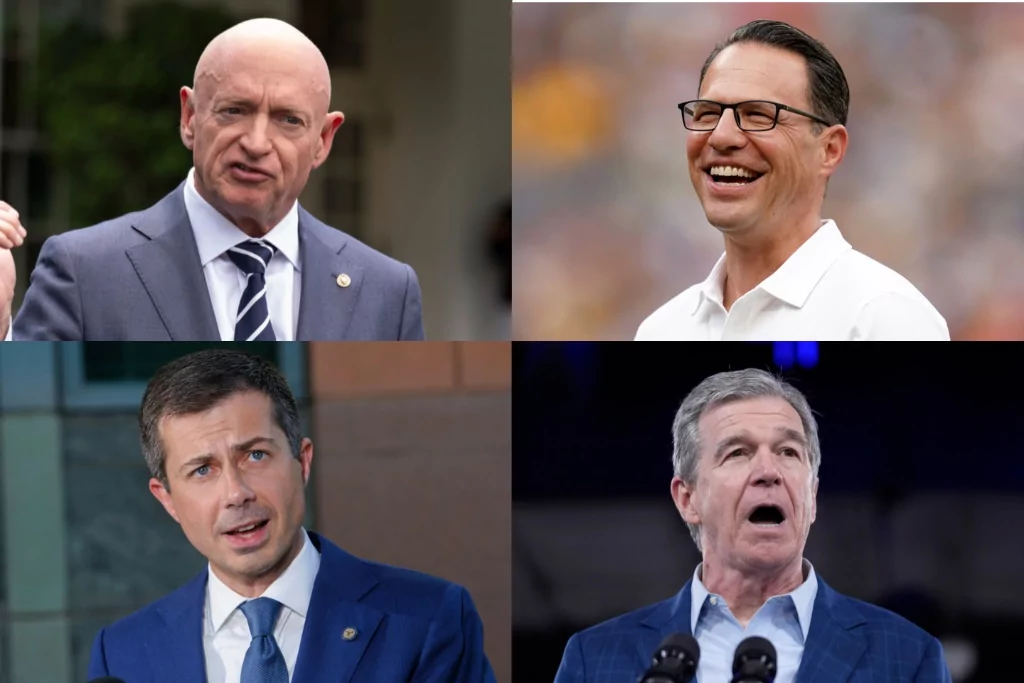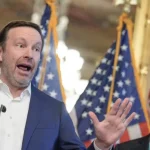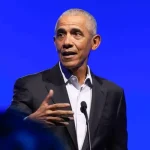

While vice presidential picks rarely have a big effect on a presidential candidate, the process of picking one is intense, highly selective, and well-documented.
From creating an initial list to vetting candidates for the national stage, many moving factors go into picking a right-hand man or woman.
For Vice President Kamala Harris, the de facto Democratic presidential nominee after President Joe Biden announced he would not be seeking reelection, the list of possible running mate candidates includes Govs. Josh Shapiro (D-PA), Roy Cooper (D-NC), Andy Beshear (D-KY), and Sen. Mark Kelly (D-AZ).
Former President Donald Trump’s selection process was compared to his reality show, The Apprentice. Those in the running were often considered to be “auditioning” for the job when outstumping for him or defending him in the media. In the weeks before he announced his pick, the names being floated as his possible running mate included Gov. Doug Burgum (R-ND) and Sen. Marco Rubio (R-FL). He ultimately landed on Sen. J.D. Vance (R-OH).
Governors and senators are preferred above others
As the list of Harris’s possible picks suggests, governors are seemingly top choices for vice president. When a party and candidate begin compiling a list of running mates, they often look at state governors.
Aaron Dusso, a political science associate professor at Indiana University, told the Washington Examiner governors are preferred because they already have experience in the executive branch at the state level.
“They have run a state while, again, not the same size as the United States, but it’s seen as the same type of job, and they have won statewide elections. So that’s the number one place where parties look to choose a vice president,” he said.
Senators are also common to pull from as they have also won statewide elections as compared to House representatives, who may only be popular in their district and have less statewide or national name recognition.
“Pretty much every senator thinks that they’re going to be president someday,” Dusso said. “Recently now, with Biden and Obama, we’ve seen some success for Senators getting there. And obviously, Kamala Harris is the VP from the Senate and now is going to be the nominee.
“So the senate is kind of the second path, although I think parties still prefer the governor path,” he continued. “If you’re a governor and from a battleground state, that’s going to be a prime target, a prime individual to potentially be a vice president.”
While Harris’s list certainly checks that box, Trump’s list and pick, as well as his former Vice President Mike Pence, were all from non-competitive Republican states. It’s a strategy that won for Trump in 2016, but it’s unclear how Vance will bode in 2024.
Vetting process for possible picks
Once a list of people is compiled, the candidates for vice president are then sent vetting materials. According to Dusso, vetting materials include providing statements and personal information, such as bank account information or even the existence of foreign bank accounts.
“It’s like a background check — you’re trying to unearth all those skeletons, not necessarily because you wouldn’t pick someone, but you want to be ready for a campaign. One thing [campaigns] don’t like is being unprepared,” Dusso said.
“So even if you have some things that are not great on your, you know, in your past doesn’t necessarily exclude you. We want to be prepared for when it comes to light or when it’s gonna be talked about. We want to have our talking points ready to go. We don’t want to be blindsided by something,” he continued.
He said even though vice presidential picks have usually been evaluated at the state level, vetting materials give campaigns one more chance to unearth everything about a candidate.
Dusso also suggested that “thinking about balancing the ticket when it comes to demographics of the individual” has emerged as an important aspect of picking a running mate. As many have pointed out, one thing all of Harris’s options have in common is they are all white men.
“I don’t think it’s necessary anymore, but there was a time in the past, probably talking 80s, 90s, and before, where you’d want to balance the ticket geographically,” Dusso said. “So you wouldn’t necessarily want to run two people from the Northeast, want to have some balance that way. Have a Southerner and a Northerner, that kind of thing.”
He added, “That’s kind of fallen by the wayside at this point” and that it’s more about “demographic concerns” but noted that because it is such a recent political shift, “there hasn’t been much evidence that ultimately, that is a key to winning.”
However, there still is a law prohibiting both candidates on a ticket to be from the same state. This was a challenge for Trump when he was considering Rubio, also from Florida, and has struck Gov. Gavin Newsom (D-CA) from consideration as Harris’s running mate.
“The best evidence we have is that the state you come from can turn out a little bit better for their favorite son or daughter to support them,” Dusso said.
While Harris is all but set to secure the Democratic nomination after Biden’s withdrawal, the average person typically doesn’t know much about the vice president. Dusso noted that the general electorate will be in a unique situation in 2024 in which people are learning about both Harris and her future running mate at the same time.
CLICK HERE TO READ MORE FROM THE WASHINGTON EXAMINER
Dusso said learning about both candidates at once could upend how the vice president is viewed.
“Maybe the combo, the intake among people and the information they gain about both of them at the same time does play a different role than it does historically,” he said. “Because normally it would be, we’ll talk about the vice president for a couple months in the summer, and then we’ll forget about them.”





